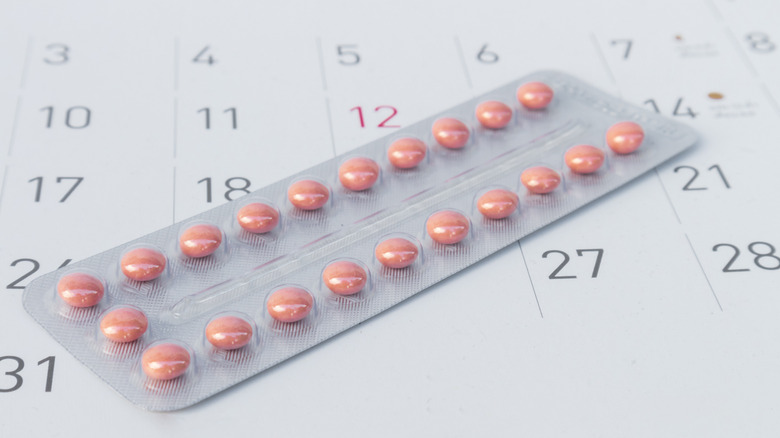How Do Birth Control Pills Prevent Pregnancy?
Most people use contraception at some point. Contraception comes in many forms, but one of the most popular and effective forms of contraception is the pill. Nearly 20% of women in their 20s are on the pill at any given time, according to the Centers for Disease Control and Prevention (CDC). Of course, the most common — but not the only — reason people take the pill is to prevent pregnancy, and it does a very good job at that. When birth control pills are taken every single day without fail, they are 99% effective at preventing pregnancy, says Cleveland Clinic.
To understand why these pills are so effective, it's important to understand how the body prepares for a pregnancy. Around two weeks before a woman gets her period, her ovary releases an egg. This is called ovulation. If the egg unites with a sperm within 12 to 24 hours, fertilization takes place, which can lead to a pregnancy (per Office on Women's Health). Most birth control pills interrupt this process.
Birth control pills offer multiple layers of protection against pregnancy
According to the Cleveland Clinic, most birth control pills stop the ovaries from releasing eggs, thereby preventing fertilization. This is not the only way that birth control pills prevent pregnancy, though. In fact, when it comes to progestin-only birth control pills, it is not even a main function, as around 40% of women continue to ovulate, says the American College of Obstetricians and Gynecologists. So what are the other ways that birth control pills prevent pregnancy?
One way is that both combination pills and progestin-only pills thicken the mucus at the cervix, which prevents sperm from getting into the uterus. Just in case the woman ovulates and sperm manages to get through and fertilize an egg, the pill thins the lining of the uterus so that any fertilized egg is unlikely to attach. When you take the pill as designed, all of these functions lead to 99% effectiveness against pregnancy.


